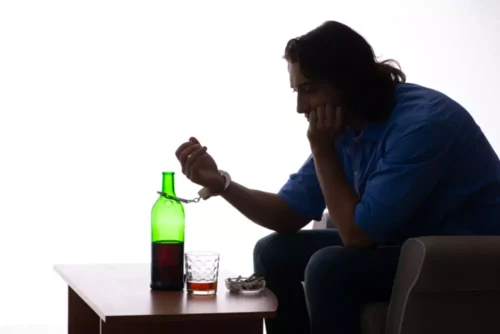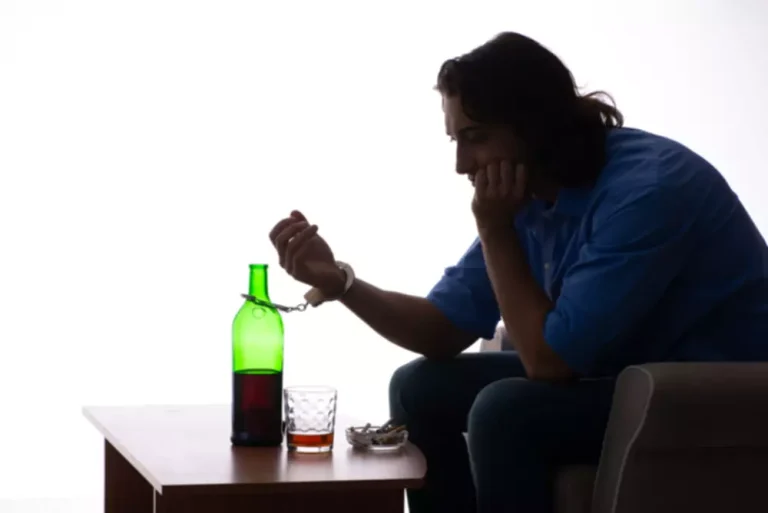
If you’re in a social setting where others are drinking, it’s important to recognize the signs of intoxication in your friends or loved ones. If someone is showing symptoms of severe intoxication—such as slurred speech, trouble walking, or vomiting—it’s time to intervene and help them stop drinking. Understanding how much alcohol your body can tolerate is the first step in preventing overconsumption. Pay attention to how you feel after each drink, and listen to your body’s signals.
- You probably know at least one person who’s intent on screaming “I’m not drunk!
- This is your body’s way of reacting to the toxic effects of too much alcohol.
- One of the reasons people enjoy drinking is that it boosts dopamine levels in the brain, leading to feelings of happiness and confidence.
- “Our culture tells us that alcohol and sex go together, yet it is illegal to use alcohol to facilitate sex,” says Aaron White, PhD, a psychiatrist at Duke University Medical Center.
- After a drink or two, people tend to feel happier in the moment, conversation flows more readily, and connecting with others comes more easily.
- When drinking alcohol, you might spill secrets, become sexually promiscuous, or become more aggressive than you normally would.
Cultural Influences on Drinking
- People with this gene are also more likely to be impulsive when sober, and more likely to suffer from mood disorders.
- We’re brainwashed into thinking booze is a good thing before we’re even old enough to have our first glass.The language we use to describe alcohol use is very positive as well.
- As a result, they may drink more heavily, putting them at greater risk for alcohol-related health issues or physical dependence on alcohol.
- Pay attention to how you feel after each drink, and listen to your body’s signals.
Ria Health offers several FDA-approved medications for alcohol use disorder. When combined with counseling, this approach is proven highly effective. Michael Haines, director of the National Social Norms Resource Center at Northern Illinois University, explains the logic behind social-norms marketing. “If I think everyone’s getting drunk at a pub crawl, I’m going to, too,” he marijuana addiction says. A recent U.S. survey of 644 women aged 17 to 35 conducted by the American Medical Association backs this theory.
Does Alcohol Make You Feel Better?
One might say that this person has a “high tolerance” for alcohol. When we get sloppy drunk frequently, it can put a strain on our relationships with others. Our loved ones may get tired of taking care of us when we’ve overdone the alcohol, yet again. You probably know at least one person who’s intent on screaming “I’m not drunk! “Sloppy drunks” tend to overdo the alcohol, leading them to appear disheveled and engage in embarrassing behavior while drunk. Drinking alcohol releases norepinephrine into the brain, a stimulant that can lower our inhibitions and make us more impulsive.
Preventing and Managing Alcohol-Related Risks
- The reality is that alcohol can be an addictive substance and, when used in large quantities, can be harmful regardless of why one chooses to drink.
- Alcohol is the most normalised and glamorised drug on the planet.
- Looping an arm around the shoulders of an acquaintance is one thing.
This means that while you might feel in control, your judgment and motor skills are significantly impaired, leading to risky or unpredictable behavior. Alcohol disrupts the brain’s ability to think clearly and make rational decisions. As a result, you may engage in behaviors that you wouldn’t normally consider, such as driving drunk, getting into fights, or making risky choices. Blackouts are serious and often signal that you’ve consumed alcohol at dangerous levels.


Instead, they i like being drunk become more hostile when under the influence, ready to start a physical fight with anyone who provokes them. For some, “alcohol is like fueling a fire,” says Dominic Parrot, PhD, assistant psychology professor at Georgia State University. The first two are considered negative drinking motives and relate to winding down—using alcohol to “deal with it,” whatever “it” is for you. The latter two are referred to as positive drinking motives and relate to winding up—using alcohol for fun. Food helps slow the absorption of alcohol into your bloodstream. Drinking on an empty stomach accelerates the process, making you feel drunk faster and more intensely.
The Sober School

The reality is that alcohol can be an addictive substance and, when used in large quantities, can be harmful regardless of why one chooses to drink. If you’re someone who drinks for fun, keep an eye on how much you’re drinking. Enhancement drinkers are more likely to binge drink or lose track https://ecosoberhouse.com/ of their drinking when with friends, which can lead to harmful consequences like accidents, fights, or unwanted sexual encounters. Unintended injury is the top cause of alcohol-related harm among teens and young adults. Many believe that while alcohol impairs decision-making, it doesn’t significantly impact physical abilities. This misconception can lead to risky behavior, such as drunk driving.

What’s Your Drinking Personality?
If you start to feel overly relaxed, dizzy, or disoriented, it’s a sign to stop drinking and give your body time to process the alcohol you’ve already consumed. Your personality can change when you drink due to alcohol’s effects on the brain. When you consume alcohol, it is quickly diffused into your bloodstream, reaching your brain within about five minutes. As your blood alcohol concentration (BAC) rises, the effects of alcohol on your personality become more pronounced. Drinking in a social setting can increase feelings of closeness and positivity, as mentioned above. However, when drinking alone, the euphoria is more muted, or absent altogether.
